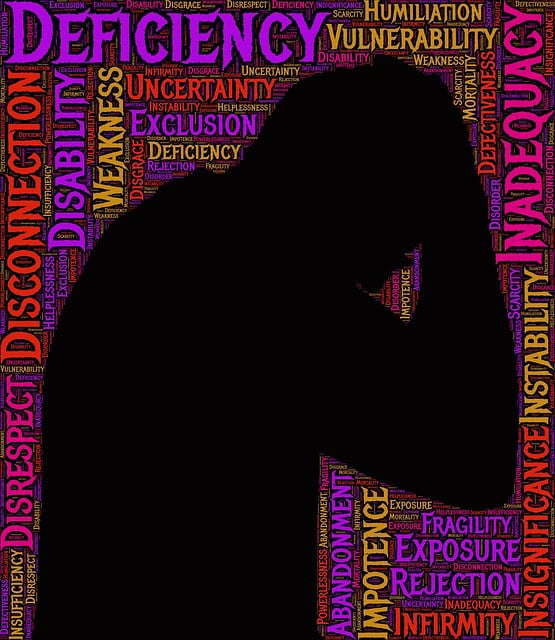Anxiety disorders, often exacerbated by modern life stresses, significantly impact daily functioning. Professional therapy, like cognitive-behavioral therapy (CBT), is crucial for management. Cultural sensitivity and stigma reduction encourage help-seeking. For terminal illness patients, specialized resources like mental wellness podcasts, social skills training, mindfulness meditation, and affirmations offer accessible coping strategies to maintain mental wellness alongside medical care, emphasizing the importance of therapy for terminal illness.
Anxiety, a widespread yet complex emotion, can significantly impact our daily lives, especially when facing challenging situations like terminal illness. This article explores various avenues to manage and overcome anxiety, offering insights into effective therapy options tailored to this specific context. We delve into understanding the profound effects of anxiety on individuals’ well-being and present practical techniques to foster resilience at home. Additionally, we highlight innovative therapy approaches for those navigating terminal illness-related anxiety, emphasizing holistic care and improved quality of life.
- Understanding Anxiety and Its Impact on Daily Life
- Exploring Effective Therapy Options for Terminal Illness-Related Anxiety
- Practical Techniques to Manage and Overcome Anxiety at Home
Understanding Anxiety and Its Impact on Daily Life

Anxiety is a normal human response to stress and challenging situations, but when it becomes excessive and persistent, it can significantly impact daily life. It’s essential to understand that anxiety disorders are mental illnesses, not personal weaknesses. They affect folks from all walks of life, regardless of age, gender, or background. In today’s fast-paced world, where demands and expectations are often high, many people struggle with anxiety at some point in their lives. Without proper management, chronic anxiety can lead to various physical and psychological symptoms, hindering a person’s ability to function normally.
The impact of anxiety extends beyond mere discomfort; it can disrupt sleep patterns, cause excessive worry, and even manifest as physical ailments. This can make everyday tasks challenging, affecting work performance, relationships, and overall quality of life. Thankfully, therapy plays a pivotal role in managing anxiety disorders, offering various effective approaches like cognitive-behavioral therapy (CBT). CBT helps individuals identify and challenge negative thought patterns, teaching them coping strategies to manage their symptoms. Additionally, cultural sensitivity in mental healthcare practice and stigma reduction efforts are crucial in encouraging those affected to seek help without fear of judgment or discrimination, promoting positive thinking and overall well-being.
Exploring Effective Therapy Options for Terminal Illness-Related Anxiety

For individuals facing a terminal illness, managing anxiety can be a complex yet essential aspect of their overall mental wellness journey. This is where exploring tailored therapy options becomes pivotal. Beyond traditional talk therapies, modern approaches like mental wellness podcast series production offer accessible resources for those seeking support. These podcasts often provide valuable insights and strategies to cope with the unique challenges associated with terminal illness-related anxiety.
Considered as a powerful tool, social skills training can also be integrated into therapy plans. This aspect targets not only the individual’s relationship with their health condition but also their interpersonal interactions, fostering a support network that contributes to overall mental wellness. With these diverse options available, individuals can find tailored relief and enhance their quality of life during this difficult period.
Practical Techniques to Manage and Overcome Anxiety at Home

Managing anxiety at home is a practical step for many individuals seeking to overcome their fears and worries. One effective technique that combines therapy with self-care is mindfulness meditation. This practice encourages individuals to focus on the present moment, thereby reducing the impact of anxious thoughts about the past or future. By regularly dedicating time to quiet reflection and conscious breathing, one can cultivate a sense of calm and resilience.
In addition to mindfulness, burnout prevention strategies for healthcare providers can be adapted to benefit anyone dealing with anxiety. Prioritizing self-care, setting boundaries, and maintaining a healthy work-life balance are crucial in managing stress levels. Encouraging positive thinking through affirmations or journaling can also help shift one’s mindset from negative to more optimistic thoughts, further mitigating anxious feelings.
Anxiety management is a multifaceted approach, especially when dealing with the unique challenges of terminal illness. Understanding anxiety’s impact on daily life is crucial, and exploring effective therapy options tailored to this specific context can be transformative. By combining professional support with practical techniques, individuals can navigate their anxiety journey more effectively. These strategies empower folks to manage symptoms at home while fostering resilience and enhancing overall well-being. Remember, with the right tools and support, managing anxiety related to terminal illness is achievable, paving the way for a more peaceful and fulfilling life.











